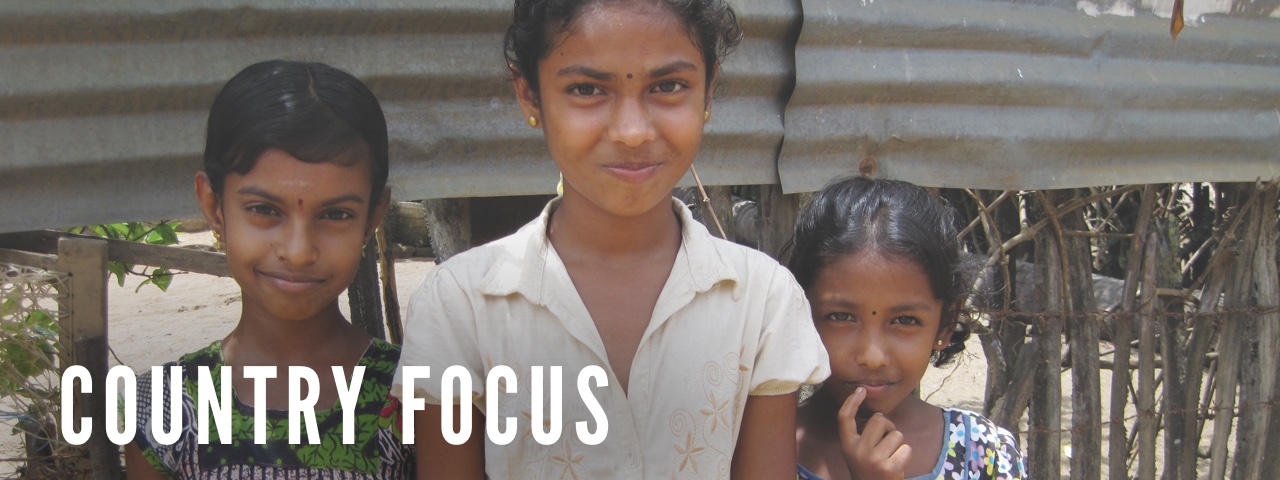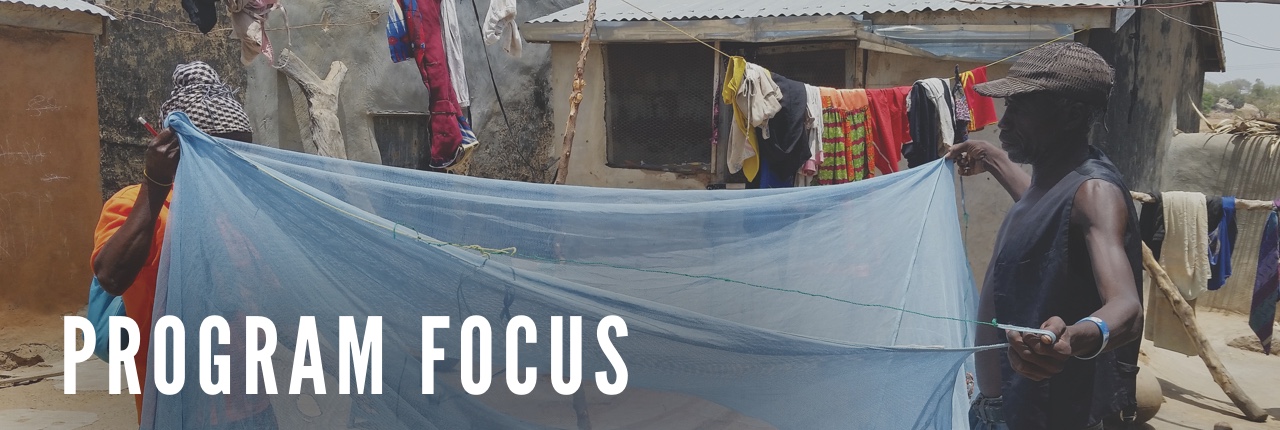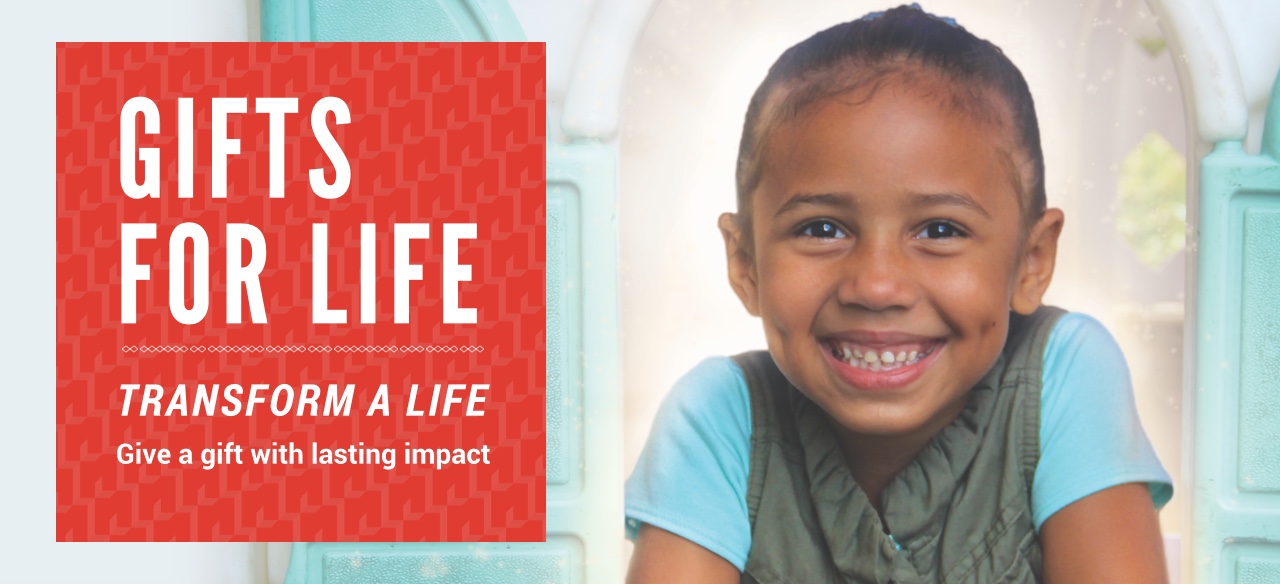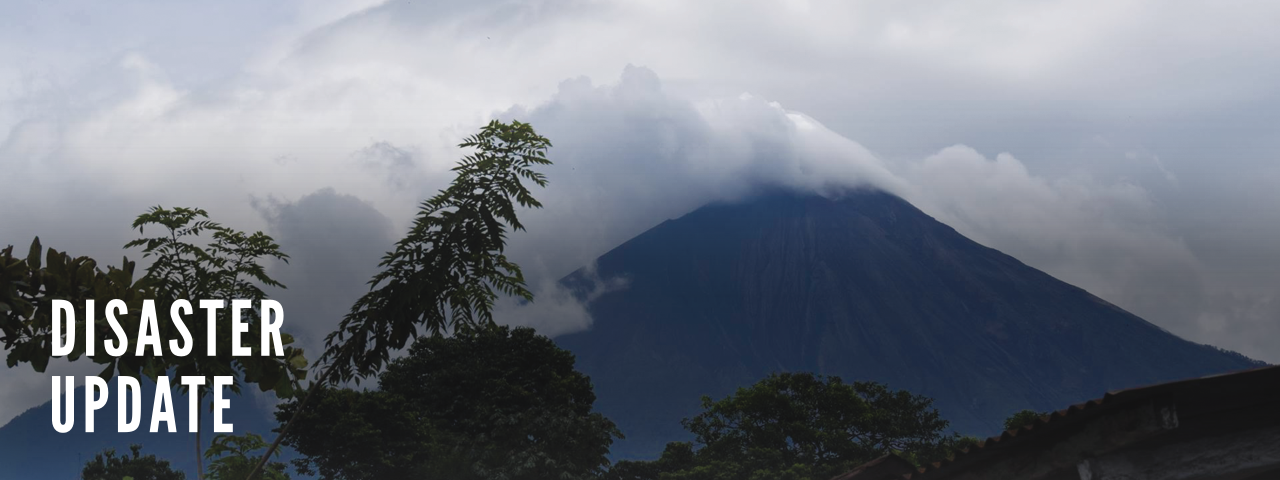
|
|
FALL 2018 E-NEWSLETTER
|
|
|

|
|
Working Together for Lasting Change
|
You will have noticed that Episcopal Relief & Development has a new logo and tagline debuting in this issue of Seek & Serve. The new logo and tagline were chosen to be simple, direct and powerful. We believe they will be easier and less expensive to use across the web and in printed materials than our prior logo. As always, we seek to be good stewards of your faithful support.
Moreover, we feel this logo and tagline highlight our commitment to our faith and to working together with supporters and program partners for real and sustained change. We have chosen a color palette that reinforces our connection to the Episcopal Church and the
Anglican Communion.
Furthermore, during the current strategic period, we are focusing on three priority areas where we feel we have unique capacities to bring about lasting change in collaboration with our partners around the world. The three priority areas are: Women, Children and Climate.
1. WOMEN: Our work with women is based on the vision that everyone deserves a life free from violence in a society where they are treated with dignity and respect. We focus on helping communities fully recognize the rights of women and children, with emphases on promoting gender equality, fostering women's economic stability, cultivating women leaders and ending violence against women.
2. CHILDREN: All children deserve the chance to achieve their God-given potential. Research shows that the first 1,000 days of life are foundational, affecting a child's capacity to grow, learn and thrive throughout their entire life. Our work with children therefore focuses on a
child's first five years. Our collaborations emphasize helping children reach appropriate health and developmental milestones.
3. CLIMATE: The number of climate-related disasters has doubled in the past 20 years. Floods, hurricanes and other events devastate communities and cause untold suffering. Our work in the area of climate centers on strengthening communities by promoting greater food security and good water management, improving sanitation and economic stability — and helping communities prepare for potential disasters. When and if disaster does strike, we help people recover and rebuild, both in the immediate aftermath and over the long haul.
Notwithstanding our emphasis on Women, Children and Climate let me assure you that our commitment to relief in the immediate aftermath of disasters and long-term recovery both here at home and abroad is unchanged. "Relief" is, after all, our middle name!
Our programs can have such a powerful impact because of our faith and our church's historic global connections. We are embedded in local communities and are guided by them to determine how best to meet their needs, relying on their unique wisdom and experience.
Thank you for all of your prayers and support. I hope you enjoy this issue of Seek & Serve, where you will read about the ongoing fruits of your faith and compassion.
|

|
|
Faithfully,
|

|
Robert W. Radtke
President & CEO
|
|
|
|

|
|
Sri Lanka—Building Peace and Healing Communities
|
The island nation of Sri Lanka was embroiled in a
26-year civil war that ended in 2009. Although the
country is now at peace, complex, deep-seated
ethnic and religious divisions remain between the
majority Sinhalese and the Tamil minority.
To address these tensions and promote ongoing
harmony, Episcopal Relief & Development and
its Sri Lankan partner, the Anglican Diocese of
Colombo, have launched a holistic initiative called
Communities Empowered for Peacebuilding. The
Anglican Church in Sri Lanka is comprised of
Sinhalese and Tamil members and has long been a
respected and neutral stakeholder for peace. It has
been effective in both grassroots activities as well as
carrying out strong public advocacy at regional and
national levels.
The new peacebuilding program is based on a
grassroots "people-to-people" approach and will
build on the valuable multi-faith, multi-ethnic peace
and reconciliation experience of clergy and lay
leaders. The initiative's goal is to foster harmonious
and equitable relationships among religious groups
and community members.
Central to the vision is the promotion of community
and individual rights through local gatherings
and workshops. Although the program provides a
framework, each community is encouraged to do
what members feel is relevant and most necessary
for their particular situation. The program facilitates
the meeting, but the agenda is their own.
The group that meets in Anuradhapura, for instance,
has used the opportunity provided by the program
to meet once every two months to share their needs
and find solutions to each other’s problems. Group
members learn from one another and share their
knowledge and skills.
Another group at Rajanganaya is raising awareness
in their farming community of health issues caused
by chemical fertilizers and pesticides seeping into
the water table. The group facilitated a street drama
workshop for young people that shared tools to
highlight social issues, equipping the young people
with new skills to raise awareness in an interesting
and effective way. The young people continue to
meet on their own to improve their English language
skills to improve their community’s success in a
globalized world.
Another component of the peacebuilding program
includes multi-faith and multi-ethnic workshops
focused on trauma counseling. These have
allowed people to share their difficult stories in a
space where they will be heard and
acknowledged nonjudgmentally.
|
|
|
|
ANNUAL REPORT: Highlights of our Work
Our programs can have such a powerful impact because of our faith and our church's historic global connections. We are embedded in local communities and are guided by them to determine how best to meet their needs, relying on their unique wisdom and experience.
View our Annual Report.
|
|
|
|
|

|
|
Improving Children's Health in Ghana
|
Due to improved maternal health education and services, child mortality rates in Ghana have decreased by 45 percent over the last two decades. Despite these gains challenges remain, particularly in the sparse Northern region of the country. Smallholder farming is the primary means of livelihood, and erratic rainfall and a short harvest season make for difficult farming conditions. As a result, chronic poverty and under-nutrition is widespread among families. Preventable diseases such as diarrhea, malaria, and pneumonia persistently plague these rural, marginalized communities, with malaria causing a quarter of the deaths of children under the age of five.
However, simple solutions exist that can dramatically lower the incidence of these devastating diseases. Long-lasting insecticide-treated bed nets, clean water, hand-washing and community education are all highly sustainable ways of preventing disease and saving lives.
With our Ghanaian partner, the Anglican Diocesan Development and Relief Organization (ADDRO), Episcopal Relief & Development has launched a new program to help parents and communities implement proven practices to fight these common, preventable diseases, and strengthen the health of their children so they can flourish.
Partnering with our established network of community health workers, the program will train hundreds of thousands of people — in many cases entire villages — to diagnose diarrhea, malaria, and pneumonia, and to take steps to prevent their occurrence in the first place.
The program will increase access to quality healthcare in rural areas. Goals are to increase the ownership and use of insecticide-treated nets to at least 85 percent of households in selected districts in the Northern region as well as the Greater Accra and Upper West Regions, and to increase the basic knowledge and practice of key behaviors — particularly among mothers and primary caregivers — to promote health and prevent disease. Caregivers will also learn appropriate home care strategies for malaria, diarrhea, and pneumonia.
When the program is fully operational, roughly 280 community-based health agents will conduct home visits to diagnose and treat children under five who are suffering from these three key diseases, and they will reinforce key health promotion and prevention behaviors. These agents will follow up to ensure families understand the proper use of nets within their households.
Additionally, nearly four thousand community volunteers will be trained to follow up with families on net usage and provide further education on malaria, diarrhea, and pneumonia.
|
|
|
|

|
|
Gifts that Sustain Life
|
There are many ways to express your faith and help lift up communities around the
world. For Anne Brown, supporting Gifts for Life is an opportunity to have a meaningful
impact and also let others know about the work Episcopal Relief & Development does to
transform lives.
"Every time I make a gift, I feel happy and I'm glad to introduce someone to an
organization that 'walks the walk and talks the talk,'" Anne says. "I have supported
Episcopal Relief & Development for a long while, but I decided four years ago that
Thanksgiving was a great time to send out Gifts for Life. Last year I sent these gifts in
honor of about 30 people in my church — people who are living out their faith."
Anne's grandchildren and godchildren are also happy recipients of these special gifts.
Anne includes a small present for the children along with the gift card, spreading joy at
home and around the world.
|
|
|
|
|
|

|
|
A Global Disaster Update From Nagulan Nesiah
|
As the Senior Program Officer for Disaster Risk
Reduction in our International Programs, I know
that disasters can happen anywhere, at any time.
The destruction and chaos that ensue after these
emergencies are heartbreaking, but the resilience of
those affected and the outpouring of love and care by
so many are powerful antidotes to despair.
With your gifts, Episcopal Relief & Development is
able to respond to disasters of all kinds. This spring,
those have included two volcanic eruptions, first in
Hawaii and then in Guatemala. As soon as Kilauea
erupted on Hawaii's big island on May 3, we partnered
with the Episcopal Diocese of Hawaii and the Church
of the Holy Apostles in Hilo to provide emergency
assistance, including laundry services for evacuees
staying in emergency shelters and air purifiers for
schools in impacted areas.
In Guatemala, Fuego Volcano erupted on June 3,
about 40km from the capital of Guatemala City,
sending flows of ash, mud and rocks that buried entire
villages. The eruption claimed at least 110 lives, and
1,700,000 people have been affected by the disaster.
The Diocese of Guatemala responded immediately
with local parish donations of cash, clothing, food, and
medical items, and Episcopal Relief & Development
has joined them in providing food packets, medical
items, and water bottles in the departments of
Chimaltenango, Escuintla, and Guatemala City.
And as I write, I know people are in the midst of
recognizing last year’s devastating hurricane and
cyclone season. My colleagues in International
Programs and the U.S. Disaster Team still stand
beside our local diocesan partners and people from
the communities that were hit. Thanks to your
generosity and the resilience of our partners, we are
still helping with rebuilding and healing in many of
those communities — in Sri Lanka and Madagascar,
across Texas, Florida, Puerto Rico & the Virgin Islands
— and more.
My colleagues and I are grateful for your unceasing
compassion and care.
|
|
|
|
|
We promise to always use your donation wisely
|

|
|
|
|

|
|
•
|
|
|
|